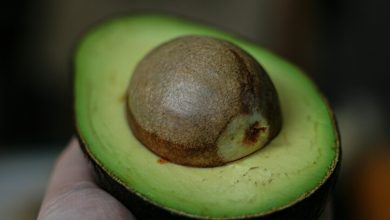Certain foods can cause changes in urine, but so can medical conditions. Know the signs

Urine odor is one of the most commonly acknowledged embarrassing circumstances. The majority of people have encountered this after consuming meals like Brussel sprouts or asparagus, which has led to some worrying about using a restroom away from home after consuming such foods due to fears that someone may enter the restroom shortly after they leave.
However, everyone experiences foul-smelling pee, however it’s undoubtedly more frequently linked to consuming particular meals over others. Urine odor can even be a sign of some illnesses that need to be treated, so it’s not always the case that an unpleasant odor is related to food decisions.
Why does my pee smell?
According to Olivia Baker, a registered dietitian and nutritionist at the Mayo Clinic in Arizona, “urine consists of water and waste products your body doesn’t need, which is why they’re expelled,” there are many other reasons why urine can smell. Urine odor can be affected, for instance, by specific components that are processed out of the body while taking supplements like vitamin B or drugs like amoxicillin.
Additionally, urine can have an altered scent due to dehydration since the concentrated urine of a dehydrated individual often smells like ammonia.
Generally speaking, however, “foods we eat have an impact on urine odor as many foods have breakdown products that are excreted in the urine, which have characteristic odors,” according to Dr. Stephen Savage, an interim chair of urology at the Medical University of South Carolina and professor of urology.
Which foods affects urine odor?
Asparagus is arguably the food that defines pee odor the most, according to Savage. “Asparagus contains an acid that is broken down and then the kidneys excrete chemical compounds such as methanethiol and S-methyl thioester, which together create the characteristic odor,” he says. Sulfur is actually the “S” in “S-methyl,” which is an element that is known for being quite smelly.
Broccoli is another meal that can have an impact on the scent of urine. According to Savage, it is metabolized similarly to asparagus, which includes the excretion of methionine and the sulfurous smell that goes along with it.
Coffee, black tea, cabbage, dried fruit, curry, alcohol, eggs, Brussel sprouts, garlic, cumin, onions, and fish are among the other foods and drinks that Baker mentions as having the potential to affect urine odor. “They can all affect the odor of your urine because the waste products of each food can contain chemical compounds that contribute to the overall smell,” she says.
Which medical conditions cause smelly urine?
In addition to dietary decisions, urinary tract infections, according to Savage, can also result in odor, albeit the majority of patients experience additional symptoms in addition to bad breath. “There are also some unusual metabolic disorders that can cause abnormal urinary smells,” he continues.
Urine can also smell due to medical problems such trichomoniasis, gonorrhea, liver failure, chlamydia, bladder fistula, and poorly controlled diabetes. “Diabetes can cause a sweet or fruity odor that can be a sign of something being amiss as well,” states Savage, “so if the smell persists, it would be important to do a urinalysis.”
In a similar vein, Baker suggests that if your pee smells sweet or awful for more than a few days and you haven’t ingested any food, supplements, or medications known to impact urine odor, “it may be a sign of a medical condition that needs further evaluation.”




